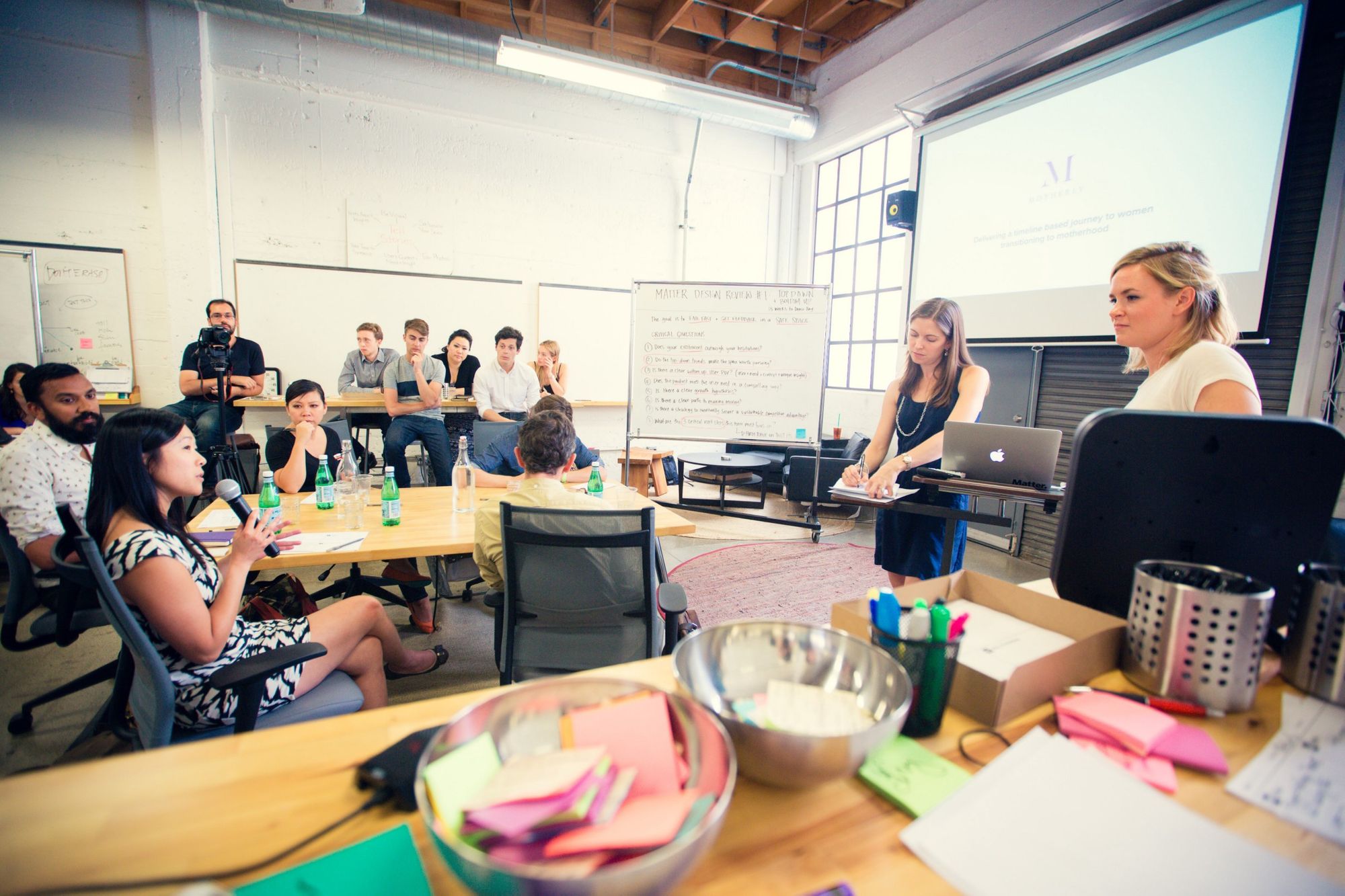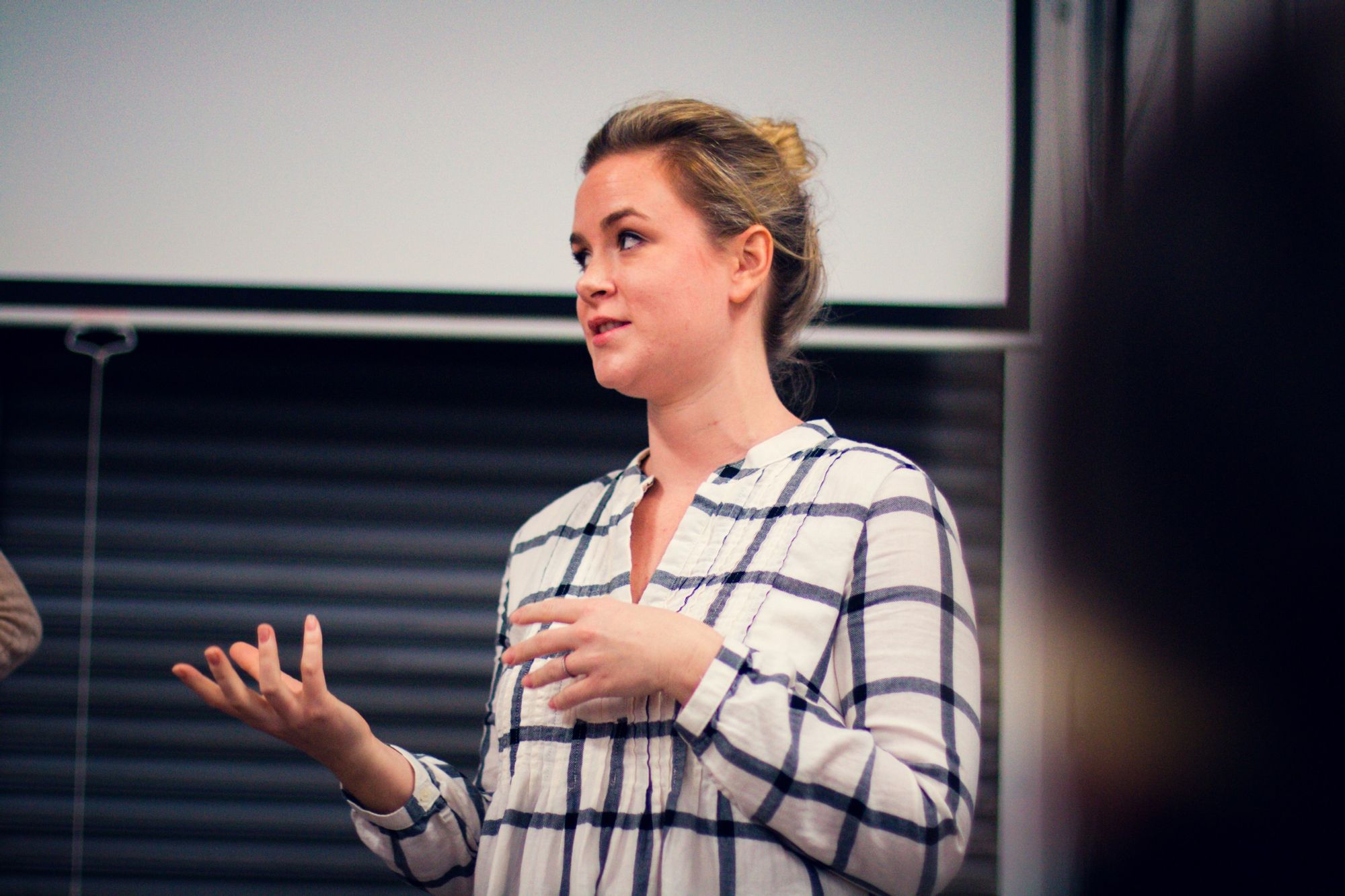How to know you’re ready to leave ‘traditional’ journalism for the media startup world

Top highlight

The upcoming deadline for the sixth class of Matter, a design thinking accelerator for early stage media companies in SF and NYC, has me thinking about all the reasons I’d encourage a friend to leave traditional journalism behind, and like me, jump into the media startup world.
I spent my 20s working at The Washington Post, starting as an intern to a prominent columnist and leaving the company as a digital editor. I bumped into Bob Woodward in the elevator (literally), chatted with Ben Bradlee over coffee, and fangirled over Pulitzer Prize winners waltzing through the newsroom. It was an honor to work for such a legendary institution, and I felt every day a duty to uphold its high standards in the digital age.
But over the years, traditional media also started also started to feel like a box put around people and information. Innovation, of course, had its limits—for example, as a digital editor, my job was to think about fact-checking and pageviews, not business models or monetization—even though the media industry was in tumult.
And the more I read about how people like Brit Morin (of Brit + Co) and Derek Flanzraic (of Greatist) were exploring new ways of connecting Millennials to inspiring ideas online (hers in maker/DIY, his in health and fitness) all wrapped in a new business model, the more motivated I became to leave the old world behind.
So last year, my cofounder (and fellow mom) Jill Koziol and I launched Motherly, a woman-centered approach to motherhood made to empower the Millennial mom.

That’s where Matter came in.
Motherly was a member of Matter’s 5th class, and its design thinking-focus helped transform Motherly from vague idea (see above 👆) to tangible, useful product, in just 20 short weeks. Matter kicked our butt. It was incredibly hard, and it was so worth it.
(And by the way: Motherly today is a personalized, week-by-week guide to motherhood, from planning a pregnancy through the toddler years. We deliver a popular email newsletter and a personalized website, sign up here!)
You don’t need to join an incubator or accelerator to put your big ideas to test—in fact, there’s no better way to start than to start small, and start now.
But if you’re wondering if you should really take the leap from traditional media (or ‘traditional’ anything) to startup life, here’s when I think you should go for it—
— When you’re finally ready to shift from, “Someone should do that” to “I should do that.”
Before I started Motherly, I had a thousand complaints about other people’s work, dozens of ‘brilliant’ ideas on businesses that should be formed, and plenty of hypotheses on how the world should be. But once I decided that it was time for me to stop Monday morning quarterbacking and actually get into the game, I realized that everything—everything—is harder than it looks.
I have a new, deep, profound respect for anyone who ventured out to build something. Anything. A volunteer organization. A barber shop. A new style of breast pump. Facebook.
Startup life is humbling, and small successes are immensely rewarding. If you’re ready to get in the ring instead of standing outside of it, you’ll grow in ways you’ve never imagined.
—When you have an idea that you’re obsessed with
And you wake up in the middle of the night to process it. And you think about it the entire time the priest is talking at church. (Bless me father for I have sinned.) And you research it when you’re supposed to be doing other work.
Obsession about an idea and passion for a project are essential to get you started. After all, you’ve got to not only convince yourself it’s a great idea, in the startup world, you’ve also got to convince others, too. This fire might get you through the long nights. And the early mornings. And the many sacrifices you’ll have to make.
But in the daily grind of running any business, it will take more than passion. It honestly takes a lot of coffee and marriage-level commitment to an idea. You just keep on going, even when you don’t want to. Even when you’re scared. Even when you’re unsure. Even when you need a break and your kids threw up again and your husband is traveling (again) and you really just want to have a normal job again and lay on the couch after a long day and watch Say Yes To The Dress.
You keep going.
And then you watch an episode of Say Yes To The Dress.
—When you’re ready to grow
For years I was completely satisfied to do a job that I found very meaningful: Editing the Post’s religion website, On Faith. I actually couldn’t imagine doing anything else. I wanted nothing more than to report and write, assign and edit web copy for the rest of my life. I wrote tweets on the weekends, for fun. Headlines were my pride and joy. It was demanding and stressful, but on the whole, I felt I was career heaven.
But as I sat on the verge of enrolling in divinity school to deepen my expertise in religion, reality struck. I was doubling down on religion knowledge—important as it was—when my true love was actually digital media.
Suddenly, the urge to learn ALL THE THINGS overwhelmed me. I was good at my job covering religion—but when it came to insider knowledge of how digital media was evolving, I knew I had to dive into the deep end. I wanted to learn by doing all the things I had imagined—build a product, develop a creative business strategy, align high quality information with an audience eager to consume it. I wanted to get in the middle of this messy transformation, and learn everything I possibly could.
More importantly, I knew I would regret not taking the chance to do something I really cared about (helping women on the journey to motherhood) in a space I loved (the Internet).
The good news? Most people I’ve cold emailed or met for coffee or brainstormed to collaborate with have been nothing but welcoming. Becoming a part of the woman entrepreneur community has been the most supportive experience of my professional life.
So yes, going from expert in my field to newbie has been humbling. And it’s been awesome.
—When you’re ready for the next big adventure
Hey—How would you like to go on a trip thinking you’re going one place, and then through a really circuitous route, which lasts way longer than you even imagined, somehow end up in a totally new world you never even knew existed?
That’s startup life.
If you’re ready for an adventure. If you’re prepared to embrace ambiguity. If you’re committed to the process more than an outcome (but are motivated by many possible outcomes), then come along.
I have no idea what will happen. But if you’re committed to learning and growing, to trying new things and hoping for success (but embracing the learning curve built into failure), you won’t lose.

